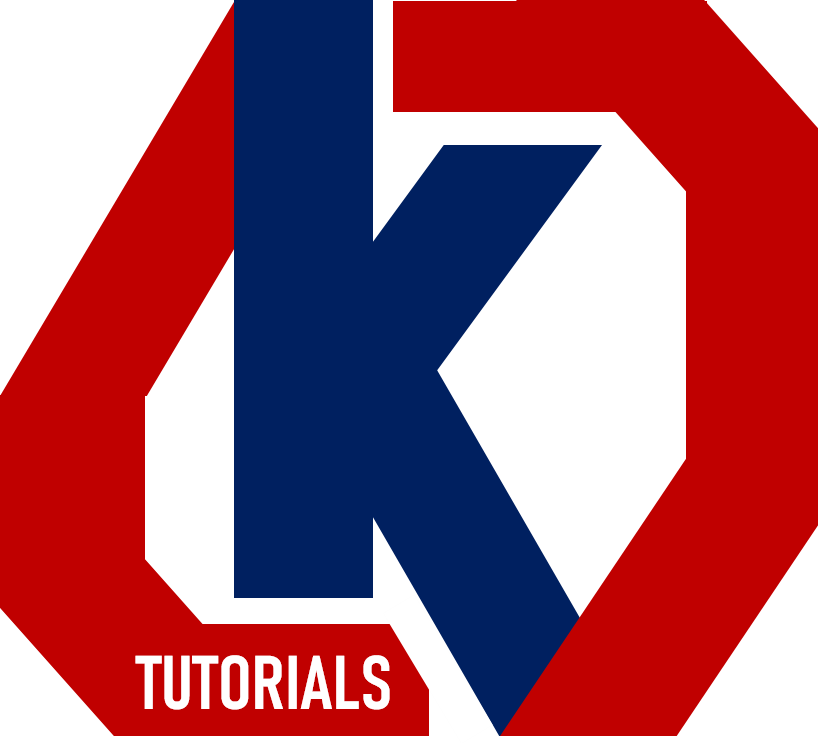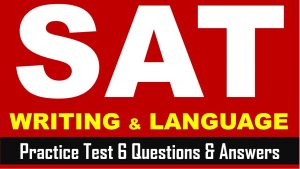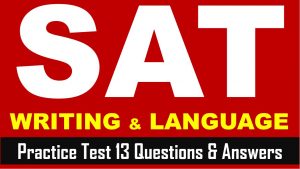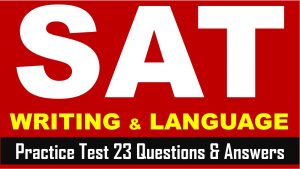Hi SAT Aspirants, welcome to AKVTutorials. As you know SAT (Scholastic Assessment Test) is a standard test, used for taking admission to undergraduate programs of universities or colleges of United States. SAT is developed and published by the College Board, an organization in United States, administered by the Educational Testing Service. Therefore, you need to do practice on SAT Reading Section, SAT Writing and Language Section. In this article, you will get SAT 2023 Reading Writing Practice Test 8 with Answer Keys AMBIPi
Instruction:
- In the passage below is accompanied by a number of questions.
- For some questions, you need to think how the passage might be revised to improve the expression of ideas.
- For other questions, you will consider how the passage might be edited to correct errors in sentence structure, usage, or punctuation.
- Some questions will direct you to an underlined portion of a passage.
- Other questions will direct you to a location in a passage or ask you to think about the passage as a whole.
SAT Writing & Language Section Passage
SAT Writing Passage Title: Science in the Medieval Islamic World
The history of science as it is taught to most Western students 1 are tragically incomplete. In many schools, teachers promote the myth that little scientific progress occurred between the fall of the Roman Empire and the beginning of the Renaissance in Europe. It is true that European scholars made little progress 2 in the natural sciences during the Middle Ages. Scholars in the Islamic world made numerous significant scientific discoveries. These discoveries laid the groundwork for future breakthroughs and made Europe’s later Scientific Revolution possible.
Many important mathematical concepts were developed by Muslim thinkers. The Persian mathematician 3 al-Khwarizmi—who worked in the 9th century CE, developed new methods for solving linear and quadratic equations. In fact, his name gave rise to the word “algorithm,” a term used in modern mathematics and computer science to refer to a step-by-step method of 4 calculation and the term “algebra,” from the Arabic “al-jabr,” also comes from his work. He also popularized the Hindu-Arabic numerals that have become the most common way of writing numbers around the world today.
[1] Muslim scientists also made important advances in the theory and practice of medicine. [2] For instance, the Persian doctor al-Razi revolutionized how doctors diagnosed disease. [3] In addition to this work on diagnosis, he pioneered techniques to test the effectiveness of treatments. [4] In the 9th century CE, he wrote a comparison of smallpox and measles in an early form of the modern technique of differential diagnosis. [5] Centuries before European doctors adopted the technique, al-Razi conducted a clinical trial to study 5 how effective the practice of bloodletting was as a treatment for meningitis. 6
7 Throughout the medieval era, the dominant view among astronomers was the geocentric Ptolemaic model. This view held that the Earth was the center of the solar system and that the planets, Sun, and stars orbited around it.
Astronomers working at the Maragha observatory in Persia, noting inconsistencies between this 8 models predictions and actual observations, developed new equations in the 13th century CE to resolve the conflict. Though they only updated the Ptolemaic theory, several centuries later their mathematical innovations inspired Nicolaus Copernicus. 9 elaborated on Copernicus ultimately proposed a heliocentric model of the solar system, with the Earth and other planets orbiting the Sun, which would revolutionize astronomy.
TIn all, thinkers in the Islamic world made enormous contributions to the development of science. Had they not preserved ancient knowledge and 10 elaborated on, it with their own findings, scientific and technological development might be centuries behind where it is today. 11 the accomplishments of medieval Muslim scientists should be better known around the world. More effort should be made to inform students about these pioneers of science.
SAT Writing & Language Practice Questions
SAT Writing Practice Test Question No 1
Which of the following options is the most effective?
Option A : No Change
Option B : being
Option C : is
Option D : am
SAT Writing Practice Test Answer
Show/Hide Answer
Option D : am
SAT Writing Practice Test Question No 2
Which choice best combine the underlined sentences?
Option A : in the natural sciences during the Middle Ages, thus, scholars in the Islamic world
Option B : in the natural sciences during the Middle Ages: thus, scholars in the Islamic world
Option C : in the natural sciences during the Middle Ages, but scholars in the Islamic world.
Option D : in the natural sciences during the Middle Ages: scholars in the Islamic world.
SAT Writing Practice Test Answer
Show/Hide Answer
Option B : in the natural sciences during the Middle Ages: thus, scholars in the Islamic world
SAT Writing Practice Test Question No 3
Which choice provides the most effectively transition to the information that follows?
Option A : No Change
Option B : al-Khwarizmi, who worked in the 9th century CE developed
Option C : al-Khwarizmi, who worked in the 9th century CE— developed
Option D : al-Khwarizmi, who worked in the 9th century CE, developed
SAT Writing Practice Test Answer
Show/Hide Answer
Option A : No Change
SAT Writing Practice Test Question No 4
Which choice results in the most effective transition to the information that follows in the paragraph?
Option A : No Change
Option B : calculation. The term
Option C : calculation, also the term
Option D : calculation, the term
SAT Writing Practice Test Answer
Show/Hide Answer
Option C : calculation, also the term
SAT Writing Practice Test Question No 5
Which choice best maintains the sentence pattern already established in the paragraph?
Option A : No Change
Option B : the effectiveness of using bloodletting
Option C : the effectiveness of bloodletting
Option D : the effectiveness
SAT Writing Practice Test Answer
Show/Hide Answer
Option D : the effectiveness
SAT Writing Practice Test Question No 6
For the sake of the logic and coherence of this passage, sentence 3 should be placed
Option A : where it is now.
Option B : after sentence 1.
Option C : after sentence 4.
Option D : after sentence 5
SAT Writing Practice Test Answer
Show/Hide Answer
Option C : after sentence 4.
SAT Writing Practice Test Question No 7
Which choice most effectively conveys the main topic of the paragraph?
Option A : on occasion, medieval Muslim scientists, like their later work by religious authorities.
Option B : Muslim scientists were not afraid to challenges widely accepted scientific ideas in the areas of mathematics, medicine, or astronomy.
Option C : The achievements of Muslim scientists were remarkable in light of their limited access to advanced equipment.
Option D : Furthermore, Muslim astronomers made accurate observations and predictions which would fuel later discoveries.
SAT Writing Practice Test Answer
Show/Hide Answer
Option D : Furthermore, Muslim astronomers made accurate observations and predictions which would fuel later discoveries.
SAT Writing Practice Test Question No 8
Which choice best maintains the sentence pattern already established in the paragraph?
Option A : No change
Option B : model’s
Option C : models’
Option D : models’s
SAT Writing Practice Test Answer
Show/Hide Answer
Option B : model’s
SAT Writing Practice Test Question No 9
Which of the following sentences, inserted here, most effectively supports the claims made in the previous sentence?
Option A : It is not yet known how Copernicus found astronomy texts from the Muslim world.
Option B : Copernicus faced many obstacles from Christian religious authorities after he proposed his heliocentric theory.
Option C : Copernicus’s equation describing planetary motion are clearly based on the work of al-Tusi, a Martha astronomer.
Option D : Copernicus was almost certainly not able to read Persian or Arabic writings himself.
SAT Writing Practice Test Answer
Show/Hide Answer
Option B : Copernicus faced many obstacles from Christian religious authorities after he proposed his heliocentric theory.
SAT Writing Practice Test Question No 10
Which choice best maintains the sentence pattern already established in the paragraph?
Option A : No Change
Option B : elaborated with
Option C : elaborated for
Option D : elaborated to
SAT Writing Practice Test Answer
Show/Hide Answer
Option B : elaborated with
SAT Writing Practice Test Question No 11
Which choice best maintains the sentence pattern already established in the paragraph?
Option A : No Change
Option B : For most people,
Option C : Afterward,
Option D : For this reason,
SAT Writing Practice Test Answer
Show/Hide Answer
Option D : For this reason,



